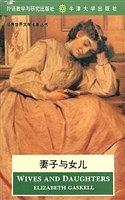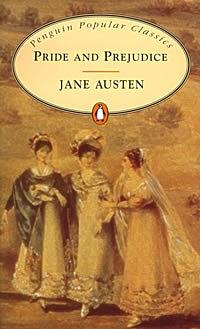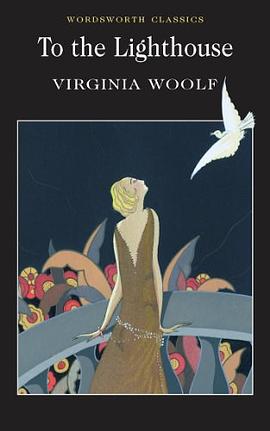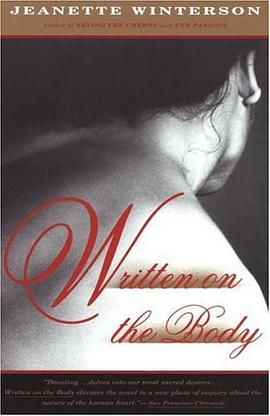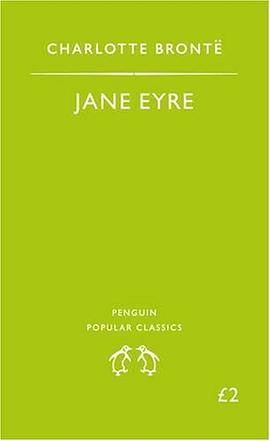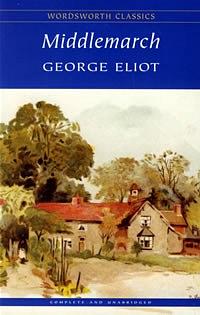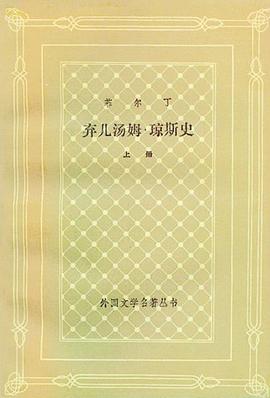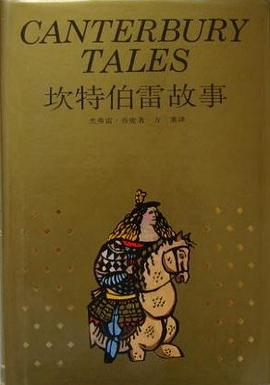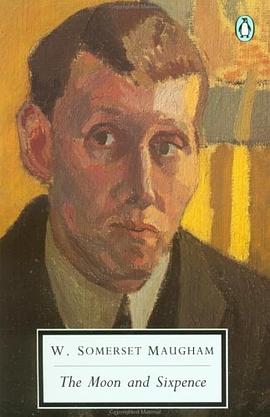

具体描述
Last night I dreamt I went to Manderley again . . .
The novel begins in Monte Carlo, where our heroine is swept off her feet by the dashing widower Maxim de Winter and his sudden proposal of marriage. Orphaned and working as a lady's maid, she can barely believe her luck. It is only when they arrive at his massive country estate that she realizes how large a shadow his late wife will cast over their lives--presenting her with a lingering evil that threatens to destroy their marriage from beyond the grave.
作者简介
If Daphne du Maurier had written only Rebecca, she would still be one of the great shapers of popular culture and the modern imagination. Few writers have created more magical and mysterious places than Jamaica Inn and Manderley, buildings invested with a rich character that gives them a memorable life of their own.
In many ways the life of Daphne du Maurier resembles a fairy tale. Born into a family with a rich artistic and historical background, the daughter of a famous actor-manager, she was indulged as a child and grew up enjoying enormous freedom from financial and parental restraint. She spent her youth sailing boats, travelling on the Continent with friends, and writing stories. A prestigious publishing house accepted her first novel when she was in her early twenties, and its publication brought her not only fame but the attentions of a handsome soldier, Major (later Lieutenant-General Sir) Frederick Browning, whom she married.
Her subsequent novels became bestsellers, earning her enormous wealth and fame. While Alfred Hitchcock's film based upon her novel proceeded to make her one of the best-known authors in the world, she enjoyed the life of a fairy princess in a mansion in Cornwall called Menabilly, which served as the model for Manderley in Rebecca.
Daphne du Maurier was obsessed with the past. She intensively researched the lives of Francis and Anthony Bacon, the history of Cornwall, the Regency period, and nineteenth-century France and England. Above all, however, she was obsessed with her own family history, which she chronicled in Gerald: A Portrait, a biography of her father; The du Mauriers, a study of her family which focused on her grandfather, George du Maurier, the novelist and illustrator for Punch; The Glassblowers, a novel based upon the lives of her du Maurier ancestors; and Growing Pains, an autobiography that ignores nearly 50 years of her life in favour of the joyful and more romantic period of her youth. Daphne du Maurier can best be understood in terms of her remarkable and paradoxical family, the ghosts which haunted her life and fiction.
While contemporary writers were dealing critically with such subjects as the war, alienation, religion, poverty, Marxism, psychology and art, and experimenting with new techniques such as the stream of consciousness, du Maurier produced 'old-fashioned' novels with straightforward narratives that appealed to a popular audience's love of fantasy, adventure, sexuality and mystery. At an early age, she recognised that her readership was comprised principally of women, and she cultivated their loyal following through several decades by embodying their desires and dreams in her novels and short stories.
In some of her novels, however, she went beyond the technique of the formulaic romance to achieve a powerful psychological realism reflecting her intense feelings about her father, and to a lesser degree, her mother. This vision, which underlies Julius, Rebecca and The Parasites, is that of an author overwhelmed by the memory of her father's commanding presence. In Julius and The Parasites, for example, she introduces the image of a domineering but deadly father and the daring subject of incest.
In Rebecca, on the other hand, du Maurier fuses psychological realism with a sophisticated version of the Cinderella story. The nameless heroine has been saved from a life of drudgery by marrying a handsome, wealthy aristocrat, but unlike the Prince in Cinderella, Maxim de Winter is old enough to be the narrator's father. The narrator thus must do battle with The Other Woman—the dead Rebecca and her witch-like surrogate, Mrs Danvers—to win the love of her husband and father-figure.
目录信息
读后感
宿 命 伽蓝 Dec.13, 2005 17:42 于深圳景田 我挖了一个很深的坑,来埋你。 “我觉得,每个人在自己的一生中迟早会面临考验,我们大家都有各自特定的恶魔灾星,备受压迫和折磨,到头来总得奋起与之搏斗。”——这是《REBECCA 蝴蝶梦》开头就写到的。这...
评分好吧,我这本书最关注的对象不是吕贝嘉,而是那位从头到尾我们都不知道名字的“我”。 “我”遇上了那位德温特先生,堕入爱河,结果在吕贝嘉的阴影下爱得战战兢兢--这大概就是书中前半部分的内容。 “我”遇到了MR.de Winter,一开始为他丧偶而感到伤心。爱上他、来到曼陀丽...
评分好吧,我这本书最关注的对象不是吕贝嘉,而是那位从头到尾我们都不知道名字的“我”。 “我”遇上了那位德温特先生,堕入爱河,结果在吕贝嘉的阴影下爱得战战兢兢--这大概就是书中前半部分的内容。 “我”遇到了MR.de Winter,一开始为他丧偶而感到伤心。爱上他、来到曼陀丽...
评分追忆第一次于文字中看到石楠,是在《呼啸山庄》广袤的荒原上。时隔多日,我如痴如醉地走进《蝴蝶梦》,走进了神秘的曼陀丽,蓦然看到,这里竟也有石楠,只是不同于那野性苍凉的初次印象,曼陀丽的石楠拥有高耸密集的火红,像血一样。 《蝴蝶梦》(又译《丽贝卡》)的作者达...
评分用户评价
说实话,初翻开这本书的时候,我其实是抱着一种略带怀疑的态度。毕竟,很多老派的悬疑小说,现在读起来难免显得有些拖沓和刻意。然而,这部作品展现出一种罕见的文学功力,它的叙事节奏如同精心调校的钟摆,精准而稳定,却又暗藏着让人心悸的变奏。作者似乎对人类最原始的嫉妒心有着近乎病态的深刻洞察力。那些关于“前任”的阴影,是如何无形中塑造并最终吞噬现在的生活,被描绘得淋漓尽致。我尤其欣赏作者对于“缺席”的运用,那种没有明说却无处不在的存在感,比任何具体的描写都要来得震撼。读这本书的过程中,我常常需要停下来,深吸一口气,因为那种被无形力量压迫的感觉实在太真实了。它不像是一场传统的侦探游戏,更像是一场心理学的田野调查,将社会阶层、性别期望这些宏大的主题,巧妙地融入到一对夫妻的日常互动和内心的挣扎之中。那种对既有美好生活的隐秘破坏,比任何血腥的场面都更令人毛骨悚然。
评分这本书的伟大之处,在于它成功地将一种个人化的、近乎偏执的女性焦虑,提升到了一个具有普世意义的文学高度。它巧妙地运用了各种意象——比如那永无止境的雾气、那令人窒息的室内装饰,以及那无处不在的“完美”范本——来构建一个女性在父权社会结构下,试图寻找并巩固自我价值的挣扎历程。它不是简单地讲述了一个女人如何被另一个女人打败的故事,而是关于一个心灵如何被环境和期望所塑造、扭曲,最终走向自我毁灭(或重生)的复杂过程。作者的文字有一种古典的美感,即便是描述最令人不安的场景,其遣词造句也保持着一种令人敬畏的克制。这种克制,反而带来了更具穿透力的震撼力。每次重读,都会有新的感悟,仿佛每次走进那座宅邸,都能注意到之前被忽略的,那些藏在壁炉架阴影里的细微线索。这绝对是一部值得反复品味、细细研读的经典之作。
评分这本书的文学价值是毋庸置疑的,它的语言结构本身就是一件精美的艺术品。你几乎可以闻到纸页上散发出的霉味和潮湿感。它的高明之处在于,它构建了一个几乎令人信服的现实世界,让你完全沉浸在那个特定的时空背景下,然后,在最不设防的时候,用一两句轻描淡写的话,瞬间打破这种平衡,让你意识到,你所看到的,也许只是别人精心布置的幻象。主角的视角是如此的不可靠,她的每一次自我怀疑、每一次对环境的过度解读,都成功地将读者拉入了她的焦虑漩涡。这种叙事上的不确定性,是整部作品张力的来源。我感觉自己像是一个被困在迷宫里的信徒,渴求真相,却又害怕真相会带来的毁灭性后果。不同于市面上那些依靠廉价惊吓取悦读者的作品,这里的恐惧是内生的、结构性的,它源自于对自我身份的迷失以及对既得安宁的深层恐惧。读完后,我花了好几天时间才从那种压抑的氛围中抽离出来,可见其渗透力之强。
评分对于那些寻求纯粹娱乐消遣的读者来说,这本书或许会显得有些晦涩和缓慢。但恰恰是这种慢,赋予了故事深沉的重量。它对建筑、对环境的描绘,已经超越了简单的背景设定,它们本身就是有生命的、带有记忆的实体。那些高耸的烟囱、空旷的走廊,仿佛都在低语着过往的悲剧。我特别喜欢作者处理“记忆”的方式,记忆在这里不是线性的回顾,而是一种循环往复的、具有传染性的疾病,它不断地侵蚀当下,让现实变得模糊不清。这种对时间感和空间感的复杂处理,使得全书的质感极其丰富和立体。它迫使读者去思考,究竟什么才是真实?是眼前触手可及的家具,还是那些萦绕不去的情感残影?整部作品的基调是忧郁的,但这种忧郁并非廉价的伤感,而是一种对生命中必然存在的遗憾和失落的深刻体认,读来令人既痛苦又着迷。
评分这部作品简直是心头的朱砂痣,那种扑面而来的哥特式阴郁氛围,让人仿佛真的置身于那个被海风侵蚀、被秘密笼罩的庄园之中。作者对细节的捕捉能力令人叹为观止,从腐朽的木地板发出的咯吱声,到窗外无休止的海浪拍岸声,每一种感官体验都被精心雕琢。故事的核心人物,那个神秘的第二任女主人,她的每一个举止、每一句不经意的低语,都充满了张力,让人忍不住去猜测她那看似完美的表象下究竟隐藏着怎样扭曲的灵魂。更妙的是,作者并没有急于揭开所有的谜团,而是用一种近乎折磨人的节奏,一点点地剥开历史的尘埃,让读者跟着主角一起在迷雾中摸索、恐惧,最终达到一种近乎窒息的阅读体验。那种对旧有秩序的挑战,对身份认同的困惑,以及对不可名状之物的恐惧,都处理得极其到位,毫不矫揉造作。读完之后,那种挥之不去的寒意和对美好事物被玷污的哀伤,久久萦绕,让人久久不能平静,仿佛自己也成了那个庄园里挥之不去的幽灵之一。它不仅仅是一个关于婚姻和嫉妒的故事,更是一部关于记忆、时间和权力结构深刻的心理剖析。
评分这个女主角内心戏也是很足,可以想出一个世界,真的好(sui)细(sui)腻(nian),就这么想了一本书……极端女性视角如果不是年代在那里我真觉得有些campy了
评分Love it!inquest--suicide--confront Favell--Baker--fire…
评分The plot itself isn't that innovative. But the mechanics it employs is inspiring. I especially appreciate the indirect way of Rebecca's being portrayed. By the way, though I can't think up a better Chinese translation of the name "蝴蝶梦", I still think such translation slightly shift the focus from Rebecca to the two living characters.
评分所有女人都不是Rebecca,但最終會否都變成Rebecca?
评分Love it!inquest--suicide--confront Favell--Baker--fire…
相关图书
本站所有内容均为互联网搜索引擎提供的公开搜索信息,本站不存储任何数据与内容,任何内容与数据均与本站无关,如有需要请联系相关搜索引擎包括但不限于百度,google,bing,sogou 等
© 2026 book.quotespace.org All Rights Reserved. 小美书屋 版权所有

